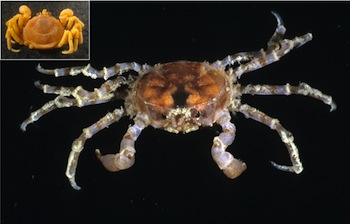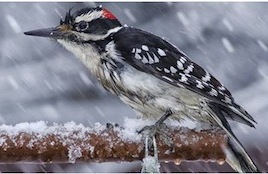
The rocky crab (Halicarcinus planatus) is generally found in South America or New Zealand, but researchers recently collected a specimen (inset) at Deception Island, Antarctica. They warn that rising ocean temperatures could allow more crabs to invade the southern continent, changing the ecological balance. (Photo credit: Sven Thatje)
As Antarctic waters begin to warm, they could become home to species of shell-crushing crabs that could devastate local organisms.
Researchers found an adult female rocky crab – Halicarcinus planatus, normally found further north in New Zealand or South America – off the coast of Deception Island, a volcanic outcrop near the West Antarctic Peninsula. T
he authors suggest that it, along with colonies of king crabs off the Antarctic coast itself, indicate that such a transition may already be underway. They call for monitoring programs to track changes in biodiversity in the area.
Original research paper published in the Journal of Biogeography on October 6, 2014.
Names and affiliations of selected authors


